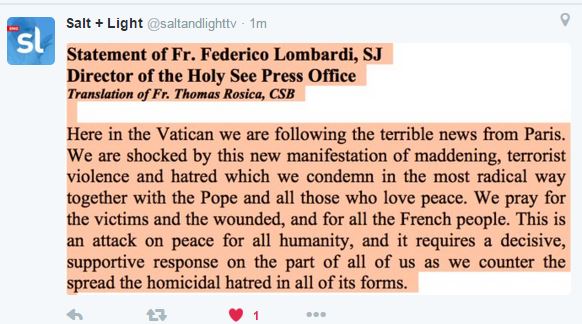 Last month I told you about a controversial new video released by the Vatican’s Pontifical Council for Culture, in preparation for the February 4-7 Plenary Assembly of the Pontifical Council for Culture, which has as its theme “Women’s Cultures: Equality and Difference.” Critics of the video thought that the Italian actress who invites women to send their concerns via video is too coquettish, too sexy, too flip.
Last month I told you about a controversial new video released by the Vatican’s Pontifical Council for Culture, in preparation for the February 4-7 Plenary Assembly of the Pontifical Council for Culture, which has as its theme “Women’s Cultures: Equality and Difference.” Critics of the video thought that the Italian actress who invites women to send their concerns via video is too coquettish, too sexy, too flip.
Cardinal Gianfranco Ravasi, prefect of the Pontifical Council for Culture, chose the theme.
Only members and consultors of the Pontifical Council will be permitted to attend. There will, however, be a Public Opening Event. Details about the conference and about the Opening Event will be released at a press conference on February 2.
We do know this: The Plenary Assembly, which has the hashtag #LifeofWomen, will consist of four sessions with the following emphases:
1. Between equality and difference: the quest for an equilibrium
2. “Generativity” as a symbolic code
3. The female body: between culture and biology, and
4. Women and religion: flight or new forms of participation in the life of the Church?
A report published today by Crux reveals some details regarding the preliminary document which was prepared by a panel of female consultors, and which will guide the Pontifical Council’s discussions. In particular, the document noted the Vatican’s condemnation of elective plastic surgery, which it calls “aggression” against women. According to Crux:
A new Vatican document expresses a negative view of elective plastic surgery for women, warning that procedures such as facelifts and tummy tucks can become a form of “aggression” that threatens female identity.
Surgical alterations in appearance, the document says, can “amputate the expressive possibilities of the human face, which are so connected to empathic abilities,” and “can be aggressive toward the feminine identity, showing a refusal of the body.”
The text suggests that elective plastic surgery may reflect the stress many women feel about their bodies, which sometimes result in “pathologies” such as eating disorders, depression, and dysmorphic disorders.
The role of women in the Church will also be a dominant theme. The preparatory document asks, “Why, with their great presence, have women had so little impact on the Church’s structures? In pastoral praxis, why are we giving women only those tasks of a somewhat rigid scheme, the fruit of ideological and ancestral left-overs?” Noting that women are top managers in other walks of life, the document seems to suggest that women should exercise greater responsibility in key Vatican posts.
Not included on the agenda is a discussion of ordination of women–which is not, according to statistics, a topic which concerns most Catholic women. There is a need, though, for the Vatican to better understand the image of woman. Most women do not, the authors note, spend their afternoons praying the Rosary or taking part in religious devotions.
Among the presenters at the February 2 news conference will be Nancy Brilli, the Italian actress whose performance on the recently released video was criticized by English-speaking Catholics.
The Vatican’s discussion of plastic surgery, I thought, was a fitting response to my report, just yesterday, about the three breast enhancement surgeries undergone by actress Melissa Gilbert.
For more information–at least, for the information which is available to date–click here.











